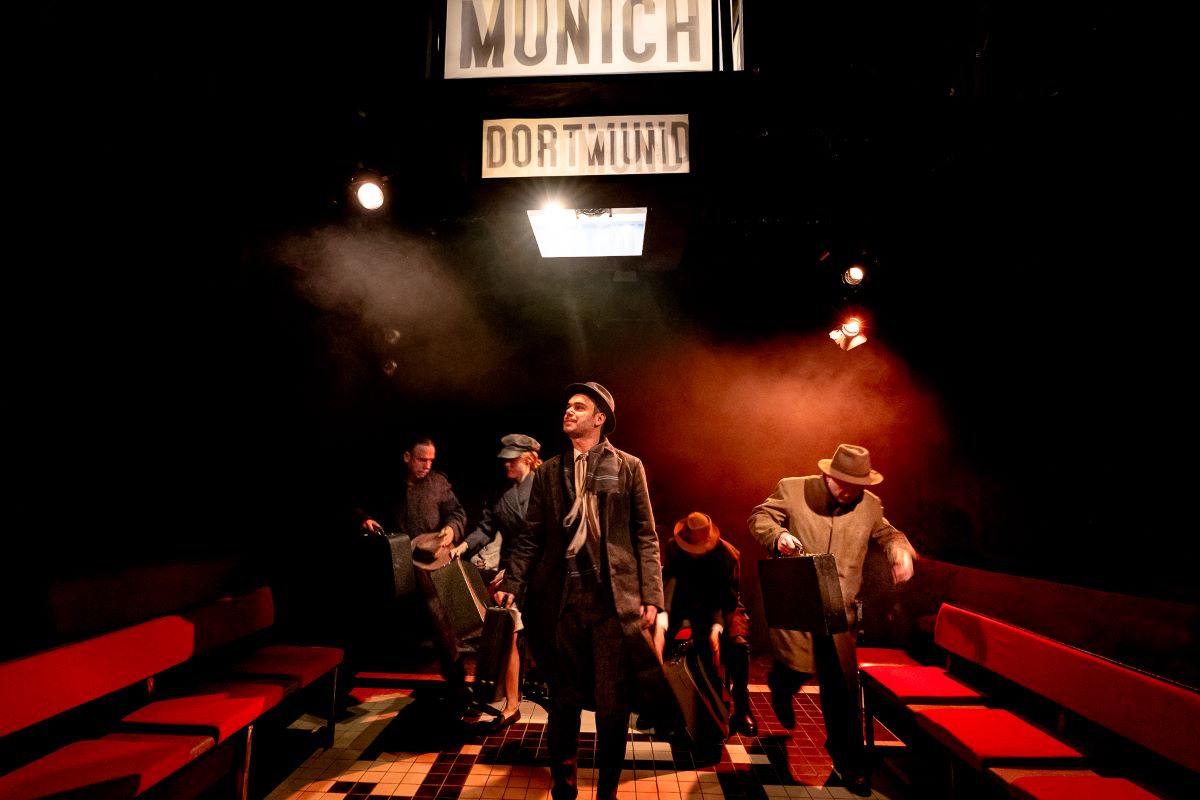The play immerses us into the brutal aftermath of Kristallnacht, the 1938 “Night of Broken Glass,” when Nazi terror unleashed on German Jews across Germany, signalling a horrifying escalation of persecution. Through the eyes of Otto Silbermann, a once-comfortable German-Jewish businessman, we experience the suffocating, disorienting collapse of a man’s life and the destruction of a community. His story, based on first-hand accounts of dispossession and loss, serves as a visceral, haunting reflection of what many German Jews endured in the months and years following that fateful night.
From the very first moments, the play draws us into Otto’s world. Initially, he is portrayed as a man who has successfully integrated into German society—he is a respected businessman, a patriot who served in World War I, a man proud of his place in the community. However, in the wake of Kristallnacht, Otto’s world begins to crumble. His comfortable life is swept away by the brutal rise of Nazi anti-Semitic policies, forcing him into a new, terrifying reality. It is this intense, disorienting shift in Otto’s circumstances that the production captures so powerfully. His bewilderment and horror are palpable, his once-certain sense of belonging and security shattered beyond recognition.

Robert Neumark Jones’s portrayal of Otto Silbermann is extraordinary. The intensity of his performance reflects the pain of a man struggling to comprehend an increasingly hostile world, unable to fathom that a society he thought he knew and loved could turn against him so completely. Otto’s transformation from a confident, active character to a passive observer, helpless in the face of escalating injustice, is devastatingly well-portrayed. His helplessness is not only due to the external forces of the Nazi regime but also to his own inner turmoil as his identity and sense of worth are violently dismantled. As Otto cries out, insisting he is “a German” and a man of integrity, his patriotism and long-held sense of self are rejected in favour of the new, racist logic that sweeps over Germany. Jones conveys this transition with heartbreaking sincerity—Otto’s growing realisation that his dignity and place in society are no longer recognised is powerful and gut-wrenching.
The production is exceptional in its ability to create an atmosphere of claustrophobic despair. The set design is minimal but highly effective—a narrow, almost suffocating space evoking the sense of a man trapped in transition, unable to escape his fate. The train carriage, a metaphor for Otto’s purgatory, is a brilliant choice, symbolising his perpetual state of limbo. As Otto is forced to board train after train, with no clear destination, the audience feels his increasing sense of powerlessness. His only hope is to escape the clutches of the Nazi regime, yet he is perpetually moving forward into an uncertain and dangerous future.
The sound design is equally effective, heightening the tension at key moments. The contrast between the eerie, foreboding sounds of impending danger and the moments of fleeting calm, when Otto shares a cigarette with fellow passengers, adds layers of emotional depth to the production. The lighting further complements this sense of unease, shifting between stark shadows and warm, fleeting moments of relief that quickly dissipate, mirroring Otto’s fleeting hopes and growing sense of futility.
As Otto’s journey unfolds, we watch as his good fortune fades. What began as a series of encounters filled with brief glimmers of hope soon turns into a nightmare of brutal racism, anti-Semitic violence, and the relentless stripping of his rights and identity. He is no longer an active participant in his life but instead a passive passenger on a train of destruction, helplessly witnessing the crumbling of his world. The emotional weight of this shift is felt deeply, as the play explores not only the physical destruction of Otto’s life but also the damage done to his psyche and sense of self.
The production’s raw intensity and nuanced portrayal of Otto’s tragedy make for an unforgettable and deeply moving experience.
‘The Passenger’
By Nadya Menuhin
Based by a novel by Ulrich Alexander Boschwitz
Directed by Tim Supple
Set and Costume Designer: Hannah Schmidt
Cast includes Ben Fox, Eric MacLennan, Dan Milne, Robert Neumark Jones and Kelly Price
Running Time: 90mins no interval
Until 15th March
Photo credit: Steve Gregson

